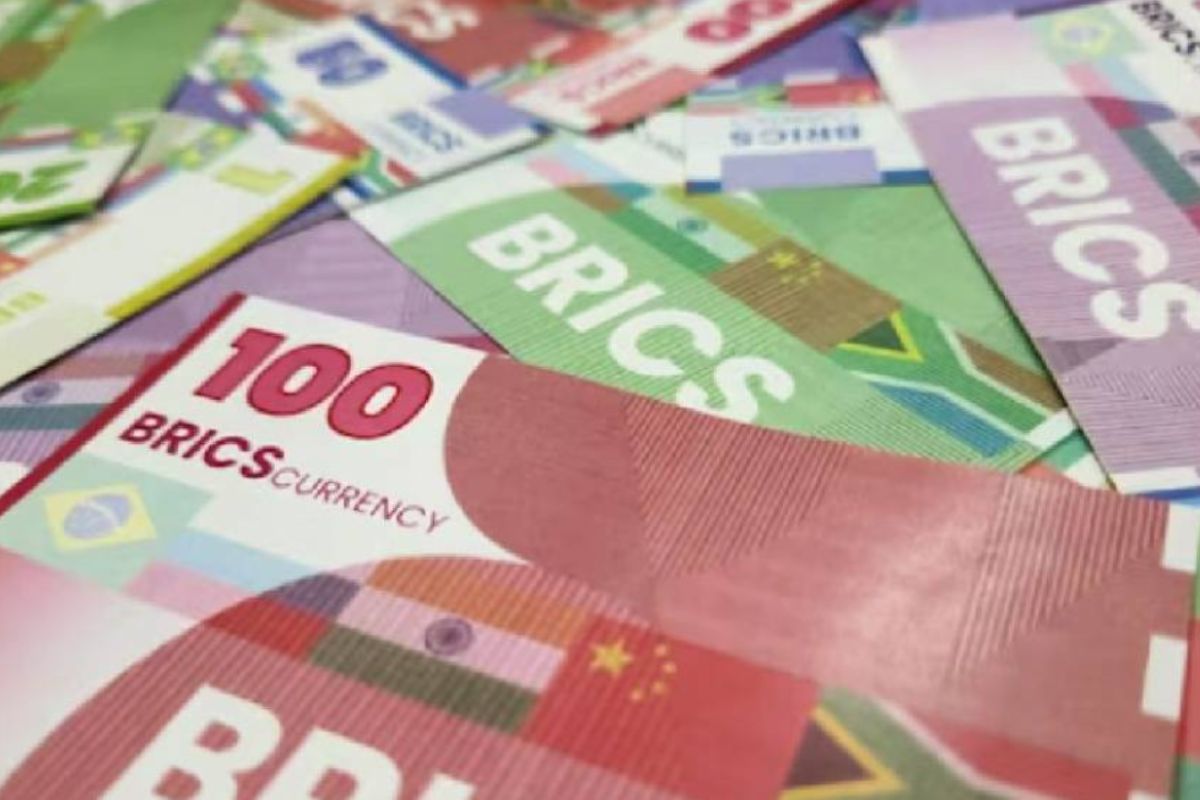NEW DELHI: The world’s economic stage stands at the brink of a significant transformation, as the BRICS nations consider introducing a groundbreaking currency in 2024. This potential move signifies a crucial milestone in the bloc’s efforts to reduce reliance on the US dollar, sparking intense discussions among experts and analysts. The addition of five new members, Iran, UAE, Saudi Arabia, Ethiopia, and Egypt, during the 2023 summit has further propelled conversations about the feasibility of a unified BRICS currency.
BRICS Expansion and Economic Ascent in 2023:
The BRICS nations have witnessed a transformative year in 2023, marked by significant developments. The inclusion of five more members highlights the increasing sway of this economic alliance, in line with its overarching goal of fostering a multipolar world. This strategic expansion seeks to counterbalance the dominance of any individual nation or currency, emphasising the bloc’s persistent commitment to de-dollarisation. The primary aim is to reduce the disproportionate influence of the US dollar on global trade.
Also Read: Argentina chooses US Dollar over BRICS membership
The potential emergence of a BRICS currency in 2024 has garnered extensive speculation. Considering the bloc’s consistent progress towards this objective, the likelihood of introducing such a currency appears more credible, according to a report by CoinMarketCap. This unified currency, designed primarily for bilateral trade, holds the promise of providing a substantial advantage amid Western sanctions. Over the past year, this concept has evolved from a mere idea to a prospective reality, as the BRICS nations actively investigate its feasibility and potential benefits.
Implications of a BRICS Currency:
The unveiling of a BRICS currency could significantly impact global trade and economics. In August, the bloc emphasised that such a move would diversify their payment options and decrease vulnerabilities, particularly in light of Western economic influence. This initiative is viewed as a decisive shift away from the US dollar, which has traditionally served as the linchpin of global trade.
This undertaking becomes notable in light of the rising economic interdependence among the BRICS nations. As an illustration, Russia and China are poised to surpass $200 billion in trade by the conclusion of 2023, underscoring the bloc’s escalating economic influence. The establishment of the New Development Bank by the BRICS countries further bolsters this momentum, offering a resilient platform for financial collaboration and development.
The suggested BRICS currency transcends being a mere financial instrument; it represents a strategic manoeuvre in global geopolitics. Its implementation has the potential to reshape the dynamics of international trade, disrupting the longstanding dominance of the US dollar. This move reflects the bloc’s dedication to fostering a more diversified and equitable global economic system.
Also Read: Pakistan seeks BRICS membership, submits application for 2024
As the global community looks ahead to 2024, the prospective launch of a BRICS currency remains a focal point of interest. This development has the potential to inaugurate a new phase in global economics, introducing a balance to the dominance of the US dollar through alternative currencies. While the specific details of this proposed currency are yet to be unveiled, its potential influence on international trade and geopolitical dynamics cannot be underestimated.
The BRICS nations, with their growing influence and economic prowess, are poised to play a crucial role in redefining the global economic landscape. The potential introduction of a BRICS currency stands out as a defining moment, representing the bloc’s ambition for a more varied and fair global economic system. As the world watches, 2024 could emerge as the year when the BRICS currency transitions from a concept to a tangible reality.











